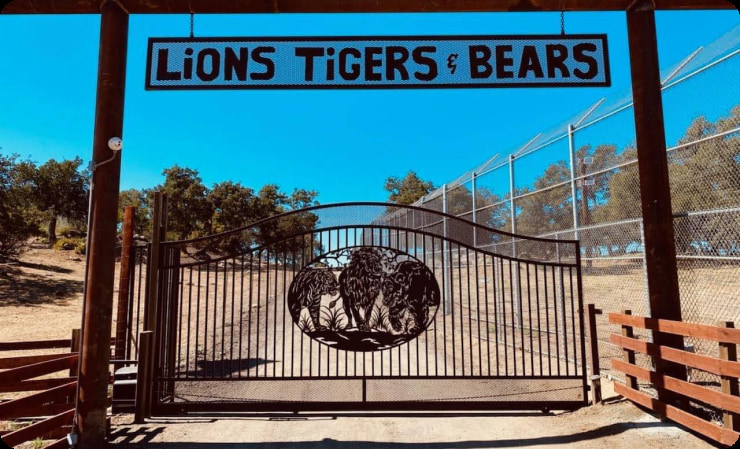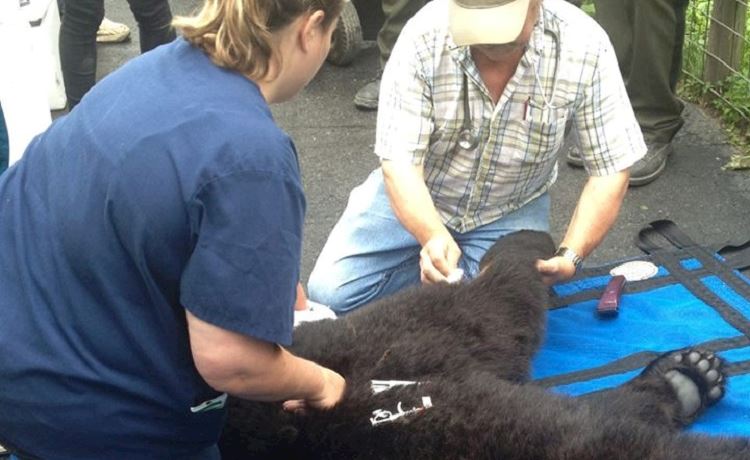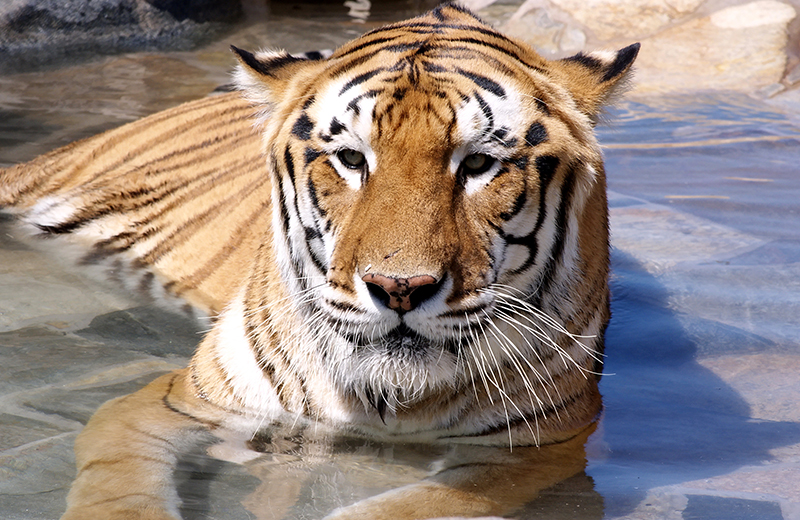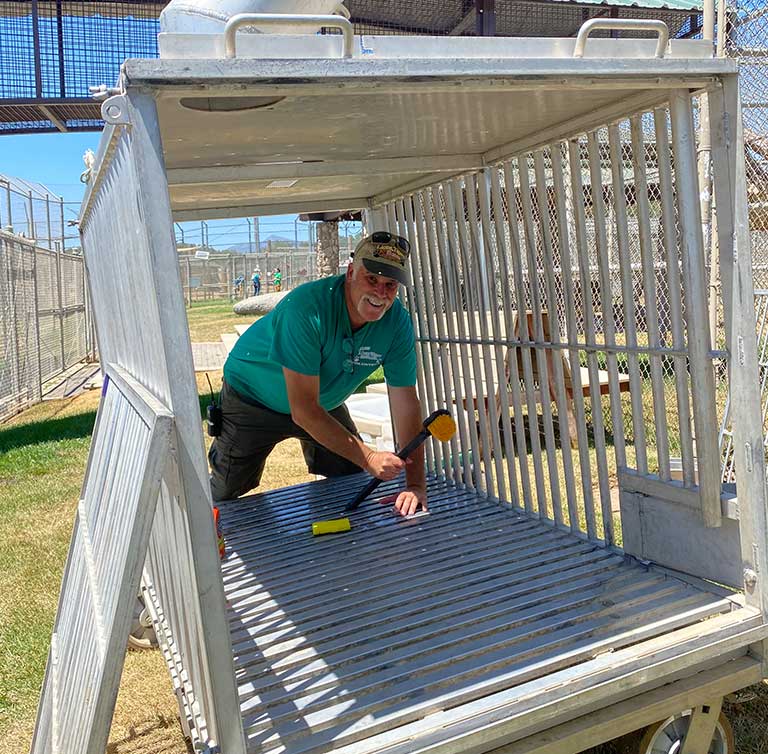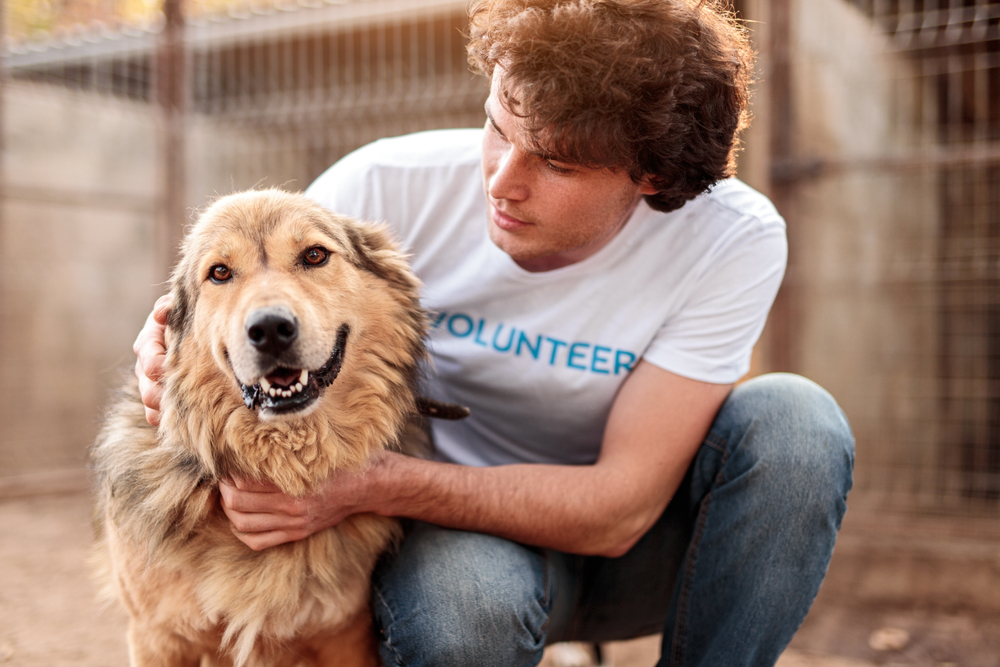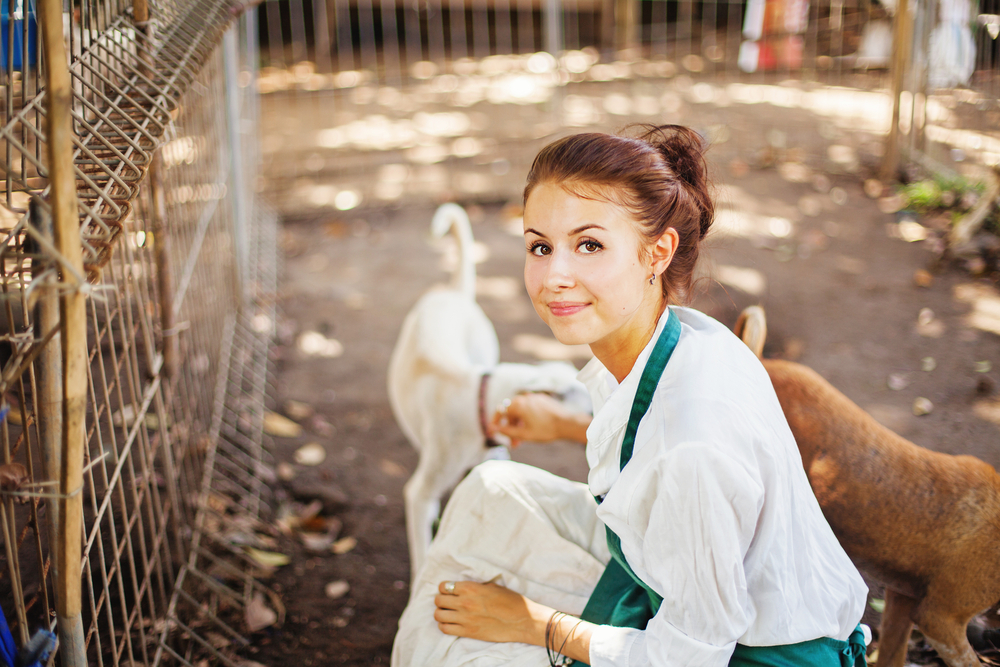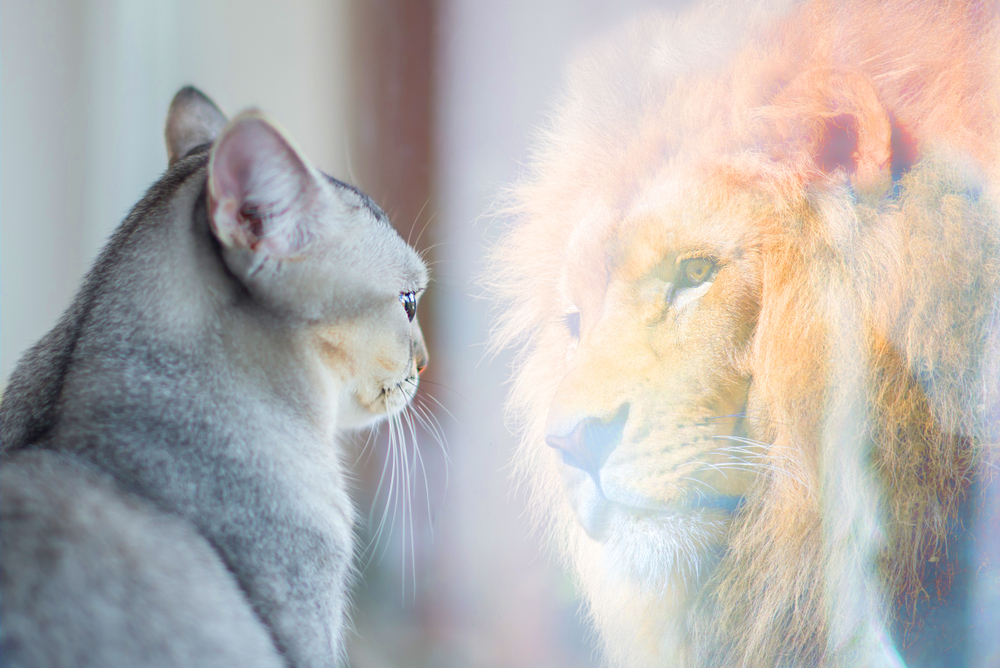Serving the Servals: Unravel the Mysteries of a Wild Cat Species
Servals are medium-sized wild cats native to Sub-Saharan Africa. They are known for their distinctive appearance, which features a slender body, long legs, and a relatively small head with large, rounded ears. These wild cat species have golden-yellow coats with black spots and stripes that often get them mistaken for young cheetahs, tigers or even leopards. Servals also have white spots behind their ears to help cubs keep track of their mothers.
Quick Facts about Servals
- Scientific Name: Leptailurus serval
- Top Speed: 40 mph
- Weight: 3.5kg to 19 kg (7.7 to 41.9 pounds)
- Size: 60 to 100 centimeters in length (23 to 39.4 inches)
- Life Span: 10 to 20 years
- Serval height: 17 to 24 inches
- Age of Sexual Maturity: 18 - 24 months
- Habitat: Wetlands and grasslands close to water
- Lifestyle: Crepuscular
- Diet: Carnivorous
- Gestation period: 72 days
- Prey: Birds, frogs, rodents
- Predators: Hunting dogs, leopards, hyenas, humans
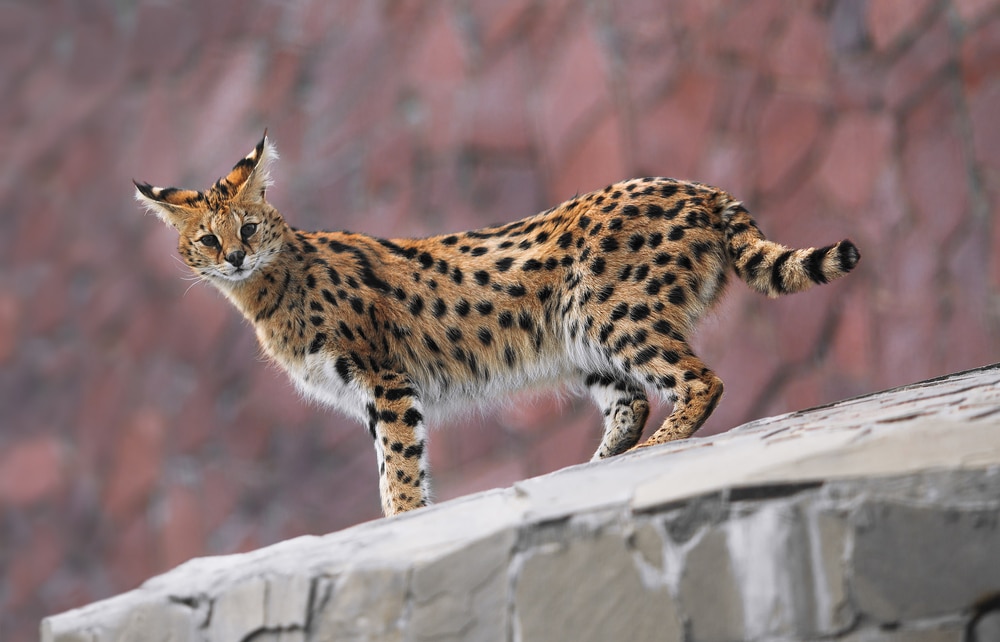
Spotted Camouflage
The serval's tawny coat, adorned with black spots and stripes, provides effective camouflage within the dappled light of their savanna and wetland habitats. Cats like tigers have stripes, while cheetahs have spots. But servals have both, sort of.
Although they don’t actually have stripes, some of the spots are close enough to look like stripes. This makes it hard to notice them in high grass. Interestingly, servals that live near woodlands have smaller spots that allow them to hide better in the tree shade.
Long Limps and Powerful Leaps
Servals have the longest legs relative to body size among all felines. These propel them effortlessly through tall grass for a view of their surroundings. The combination of long legs and powerful leg muscles allows them to launch into impressive vertical leaps, reaching heights of 9 feet (almost 3 meters) to snatch airborne prey like birds.
Huge Ears
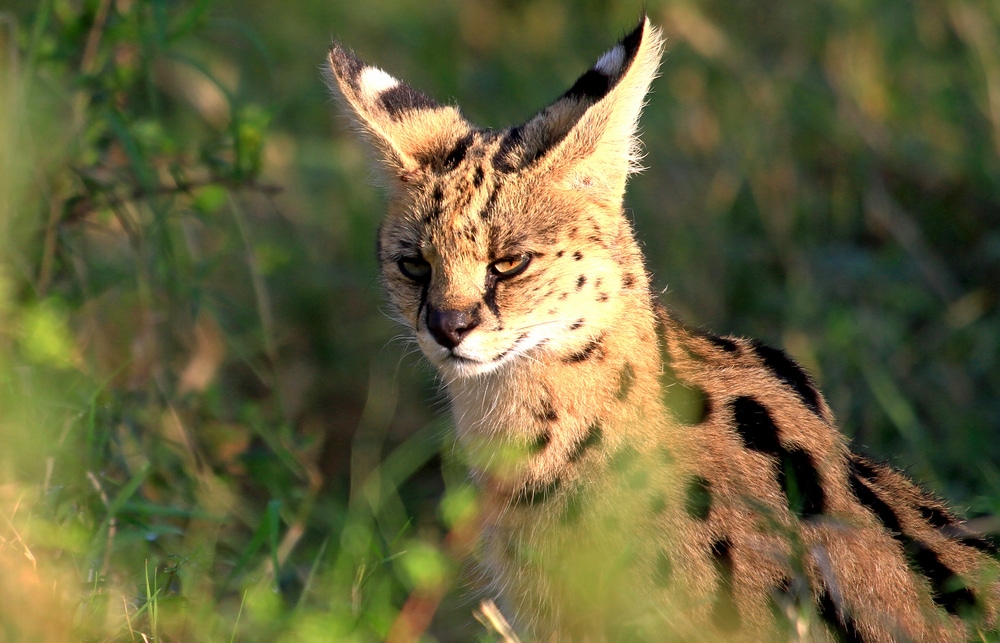
Servals can easily pass as the weirdest cats ever. Along with the extra-long legs, they have huge ears and a long neck. Surprisingly, these bizarre body parts make them one of the most successful hunters in the wild cat kingdom. They boast a 50% success rate, which is about 20% better than lions hunting with their pride.
These wild cats are not picky eaters – but they do not scavenge like most wild cats. That’s probably because they are great hunters – they can catch up to 10 frogs an hour when hinting in water. A single serval can kill and eat up to 4000 rodents and 250 snakes in one year. A typical serval diet consists of small mammals weighing 200g (7 ounces) or less. So, in addition to the above prey, they feed on rabbits, birds, lizards, crabs, and insects.
Social Behavior
Servals are generally solitary creatures, leading independent lives outside of breeding season. However, these loners occasionally form temporary partnerships for cooperative hunting or defense against larger predators. During mating season, males and females come together briefly. The only long-lasting bond is between the mother and her cubs – and this often lasts for around a year before the grown cubs move out.
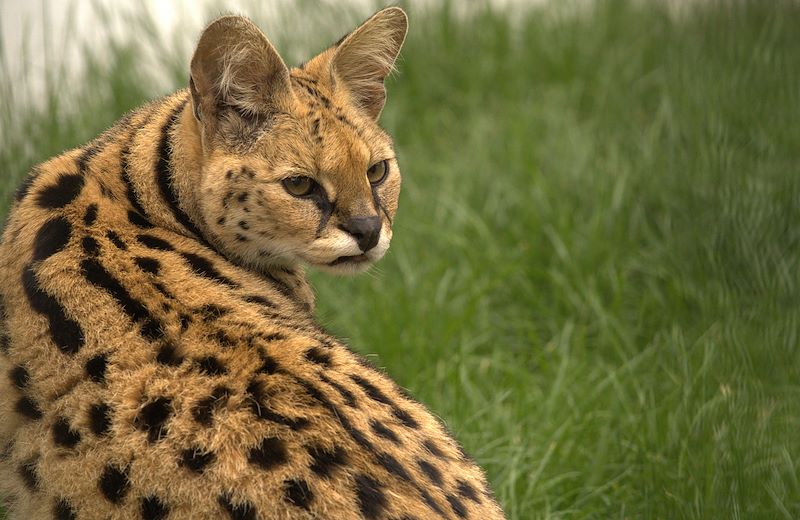
Native Serval Habitat
Servals are native to various regions in Southern Africa. Their natural habitats predominantly include savannas, which are characterized by a mix of grasslands and open spaces. The tall grasses provide cover for stalking prey, and the open areas allow them to use their exceptional leaping abilities for hunting.
These wild cats also inhabit areas with reed beds, where the dense vegetation provides additional cover and opportunities for ambushing prey. Some servals can be found in wetland areas, which offer a combination of water sources and abundant prey.
Can a Serval Kill a Human?
Servals are not known to be aggressive towards people. But they are wild animals with specific needs and behaviors that make them unsuitable as household pets. They have strong hunting instincts, are highly territorial, and engage in behaviors like scent marking. The cats also have specialized dietary and exercise needs that are difficult to fulfill in a typical household. So when you confine them within a home, they might end up experiencing stress, behavioral issues, and poor overall welfare.
Even with good intentions and resources, keeping a serval as a pet is not in the best interest of the animal, or the owner. Besides, legal restrictions pose significant barriers to owning servals in many U.S. states. Numerous states outright prohibit the ownership of servals and other exotic animals, while others necessitate special licenses or permits.
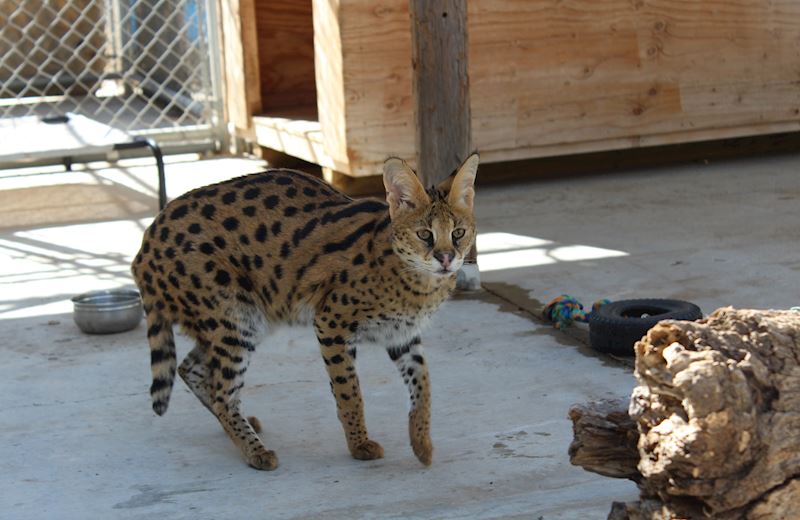
Are Servals Endangered?
Serval populations have declined over the years. However, they aren’t considered endangered save for the Leptailurus serval constantinus subspecies. But if natural history is anything to go by, the status of any wildlife species can change over time due to various factors such as habitat loss, poaching, and other human-induced threats.
The illegal activities of the exotic pet trade and poaching present severe and immediate threats to the well-being and survival of servals and various other wild animals. These practices are primarily driven by the demand for exotic pets, as well as the commercial value of animal fur, skin, and bones.
Sadly, the consequences of poaching extend beyond individual animals. It can result in population declines, reduced genetic diversity, and disruptions to ecological balance. Loss of key species like servals can have cascading effects on ecosystems, affecting prey-predator relationships and the overall health of an ecosystem as a whole.
Beyond poaching, habitat loss due to human activity also significantly contributes to the challenges wild animals encounter in the wild. Climate change is an additional factor that can impact serval habitats. Altered weather patterns, changes in vegetation, and shifts in prey distribution influence the availability of resources for the animals in the wild.
Denali’s Story
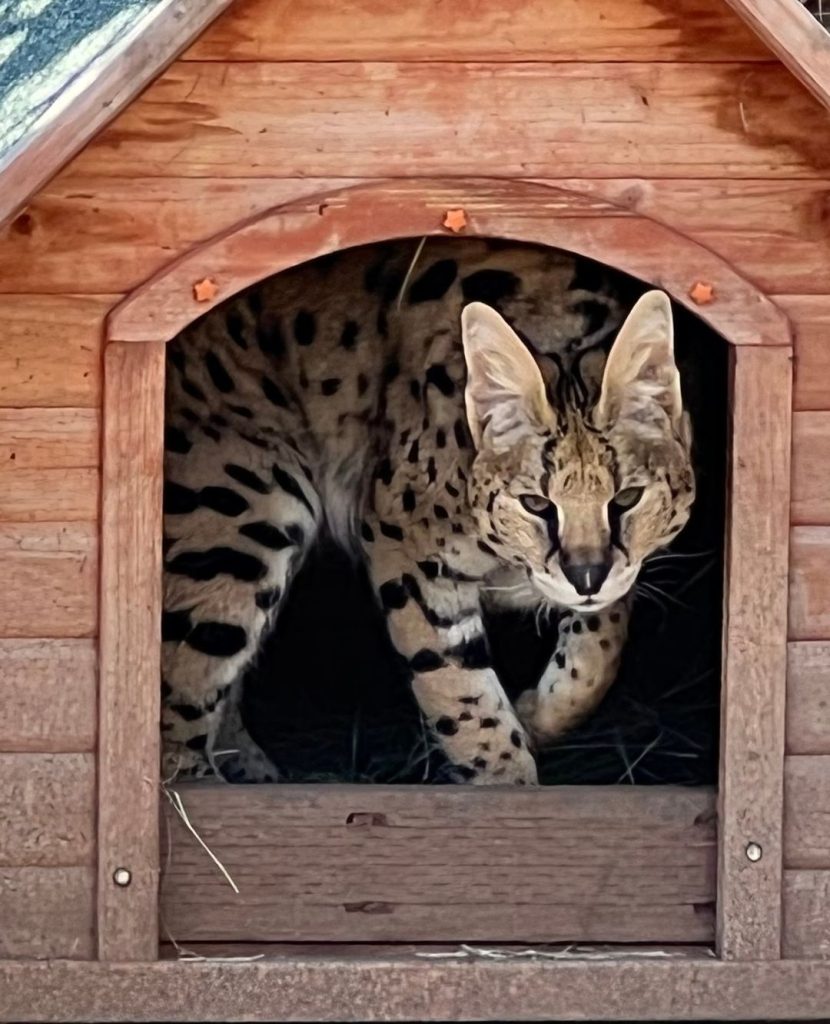
Denali is a 13-year-old serval at LTB. He was rescued from the Spirit of the Hills Sanctuary in South Dakota in 2016 following the closure of the sanctuary. But Denali’s journey didn’t start here. A military service member purchased him from a man who claimed to have acquired it from a zoo. However, by the time he was one, Denali had doubled in size compared to a domestic cat and outgrew the confines of the owner’s family's home.
So, Denali was taken to the Spirits of the Hills Sanctuary. But following a tiger mauling incident, the sanctuary was shut down, leaving Denali and others in need of a new home. Lions Tigers & Bears stepped in and took Denali.
This story underscores the issue of keeping exotic animals as pets. In all cases, it never works out for the animals, or owners. When the private owner is no longer able to care for the animal, they leave it up to the sanctuaries to care for it for the rest of its life. Sadly, the trade is booming, and the truth is more animals need homes than there are sanctuaries that can care for them.
Some of these animals end up in zoos, with breeders, or, in the worst cases, in canned hunting ranches or euthanasia. And even those who are lucky enough to find homes in sanctuaries still struggle with adjusting to new environments.Through their rescue and care efforts, Lions Tigers and Bears contributes not only to the individual lives of animals like Denali but also to a broader mission – shedding light on the struggles faced by wild animals kept in private ownership and the indispensable role that sanctuaries play in offering them a place to call home. Please consider donating, or becoming a member to help us provide a safe, caring and humane sanctuary for these beautiful creatures.
